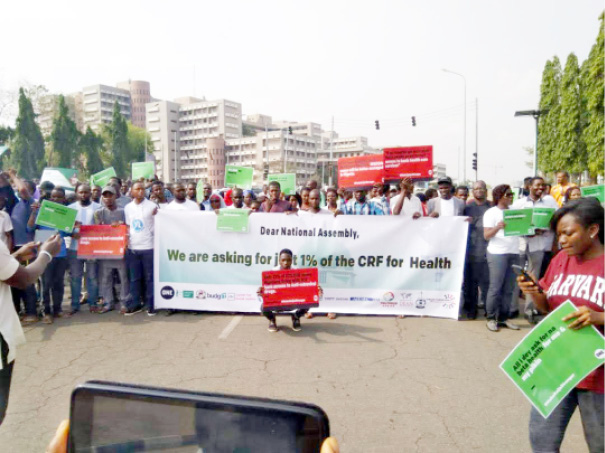HIV stigma in hospitals “very real thing”
Your health centre is where you go to lay your health burdens, but attitude of health workers may be stopping many from going in the first place. People living with HIV are finding high levels of stigma and discrimination against them from the same health workers who should know better. “Stigma is the attitude; discrimination […]

Protesters demand lawmakers to sign off 1% of budget for healthcare
Your health centre is where you go to lay your health burdens, but attitude of health workers may be stopping many from going in the first place.
People living with HIV are finding high levels of stigma and discrimination against them from the same health workers who should know better.
“Stigma is the attitude; discrimination is the action. It is a very big issue for people living with HIV in Nigeria,” said Walter Ugwocha, executive secretary of Civil Society for HIV/AIDs in Nigeria.
“In Abuja recently, some people were refused treatment because of their HIV status,” he said.
The Network of People Living with HIV in Nigeria (NEPHWAN) recently complained about that some doctors and health workers even in highly urbanised states as Lagos have “devised ways” to discriminate against HIV-positive patients.
Stigma has turned many people living with HIV from hospitals, said Abiola Ajani, coordinator of NEPWHAN south-west zone.
“Some months back, a pregnant PLHIV went for [antenatal clinic] …, a doctor who have was attending to pregnant women without hand sanitizer didn’t attend to the PLHIV claiming there was no hand sanitizer to use in palpating her,” she said.
Needless to say, the woman left the hospital.
“We must all have the understanding that no one contact the virus by mere touching someone who is positive. So, if medical personnel could behave like that, what do you think others who don’t understand how infections is transmitted would do?” said Ajani.
Some health workers have also been seen referring to colleague staff working at the Heart-to-Heart Centres with names of the disease and using code names or programme names to refer to patients.
“I once visited a Heart-to-Heart Centre and a nurse was calling another colleague who works with PLHIV ‘HIV’,” she said.
“That mode of communication is stigmatisation especially as patients were also there. Such approach will affect adherence to treatment and drugs by PLHIV thereby hindering the effort to eliminating the disease prevalence.
“My concern here is about the doctors because it starts from them before it gets to the outer world thereby correcting the little mistakes because they don’t see the PLWHIV as their patients thereby calling them F1 patient, because of the implementing partners at that particular facility.”
